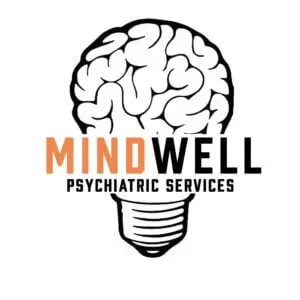Bipolar Disorder: Regain Your Life’s Balance with Medications That Rock!
Bipolar disorder, often called manic depression, is like a wild rollercoaster ride through emotions. It’s not just mood swings; instead, it’s an intense journey between extreme highs (manic episodes) and crushing lows (depressive episodes). At Mindwell Psychiatric Services, we help people regain balance every day. In this comprehensive guide, we’ll take a deep dive into bipolar disorder, the role of medications in managing it, personalized treatment plans, available medication options, additional therapies, and how a skilled mental health practitioner can be your guiding light.
Understanding Bipolar Disorder: The Rollercoaster of Emotions
Imagine feeling like you’re riding an emotional rollercoaster, but it never stops. That’s bipolar disorder. In manic episodes, you’re on top of the world, bursting with energy and ideas. However, then the plunge into depressive episodes can be devastating, leaving you feeling hopeless. Therefore, recognizing these mood swings early is crucial for getting help.
The Spectrum of Bipolar Disorder
Bipolar disorder isn’t a one-size-fits-all condition. Instead, it’s a spectrum, ranging from Bipolar I with severe manic and depressive episodes to Bipolar II with milder manic phases (hypomania) and more frequent depressive episodes. Consequently, understanding where you fall on this spectrum helps tailor your treatment.
The Impact on Daily Life
Furthermore, bipolar episodes can disrupt daily life, affecting work, relationships, and personal well-being. For instance, manic phases may lead to reckless behavior, while depressive episodes can make even simple tasks seem insurmountable. Therefore, recognizing these challenges is the first step to seeking help.
The Role of Medications in Managing Bipolar Disorder
Medications are the backbone of bipolar disorder management. They’re not magic, but they can stabilize your mood and help you gain control. Think of them as the rock-solid foundation beneath your rollercoaster. Let’s debunk myths and clarify the real benefits of these meds.
Mood Stabilizers
First, mood stabilizers are the cornerstone of bipolar treatment. They do exactly what their name suggests – stabilize your mood. For instance, Lithium is a well-known mood stabilizer that can prevent manic and depressive episodes. Additionally, anticonvulsant medications like Valproic acid and Lamotrigine are also effective mood stabilizers.
Antipsychotics
Second, in severe manic episodes, antipsychotic medications can be incredibly helpful. Medications like Olanzapine and Risperidone can rapidly calm manic symptoms, thereby preventing dangerous behavior.
Antidepressants
Third, while antidepressants can lift depressive moods, they are used with caution in bipolar disorder. Specifically, they’re often combined with mood stabilizers to minimize the risk of triggering manic episodes.
The Balancing Act
Finding the right medication and dosage is a delicate balancing act. It may take time to discover what works best for you. However, your mental health provider will closely monitor your progress, making adjustments as needed. Medication management ensures you get the right treatment. Medications are a valuable tool, but they’re most effective when combined with other strategies.
Personalized Treatment Plans: The Heart of Bipolar Management
No two individuals with bipolar disorder are the same. That’s where personalized treatment plans come in. It’s like having a tailor for your mental health. Your mental health provider assesses your unique situation, symptoms, and history to create a treatment plan that fits you like a glove. Therefore, your active involvement is key.
The Comprehensive Assessment
First, your journey to stability begins with a comprehensive assessment by a skilled mental health provider. This isn’t a one-size-fits-all approach. Instead, it’s about getting to know you, your history, and your unique mental landscape. The mental health provider asks questions, listens to your experiences, and collaborates with you to understand the challenges you’re facing. A psychiatric evaluation is the essential first step.
Diagnosis and Understanding
Second, they work on diagnosing any mental health conditions that may be affecting you. This isn’t about putting labels on you. Rather, it’s about understanding the patterns of thoughts, emotions, and behaviors that are at play. With a clear diagnosis, the mental health provider can pinpoint the areas that need attention.
Tailored Treatment Plan
Third, with a diagnosis in hand, the mental health provider crafts a tailored treatment plan. This plan isn’t just about medication. Instead, it’s a holistic approach that considers your entire mental landscape. It may include therapy, lifestyle changes, and medication when necessary. Each element of the plan is designed to address specific challenges.
Medication Management
Additionally, if medication is part of your treatment plan, the mental health provider carefully selects the right medication based on your diagnosis, genetics, and any potential side effects. They monitor your progress and make adjustments as needed. Think of them as the navigators of your mental ship, ensuring you stay on course.
Therapeutic Guidance
Furthermore, therapy is another essential tool in your treatment toolkit, and your mental health provider can recommend the right therapeutic approach for you. Whether it’s cognitive-behavioral therapy (CBT), psychoanalysis, or another modality, therapy helps you explore the nooks and crannies of your mental landscape. It’s like having an experienced guide who knows the terrain well.
Education and Empowerment
Moreover, your mental health provider isn’t just a treatment provider; they’re an educator and an advocate for your mental health. They explain your diagnosis, treatment options, and how to navigate the challenges ahead. Consequently, they empower you with knowledge, helping you become the steward of your own well-being.
Ongoing Support
Finally, mental health isn’t a one-and-done deal. Your mental health provider provides ongoing support, ensuring you continue to thrive. They’re there to answer your questions, address concerns, and make adjustments to your treatment plan as needed. You’re not alone on this journey; you have a trusted partner by your side.
Medication Options for Bipolar Disorder
Let’s talk about the meds that rock for bipolar disorder. Mood stabilizers keep your highs from getting too high and your lows from getting too low. Additionally, antipsychotics can help control manic symptoms, and antidepressants can lift depressive moods. Here’s how each type works and what to consider.
Mood Stabilizers: The Superheroes
Mood stabilizers are the superheroes of bipolar treatment. They’re like the steady hand on the rollercoaster, preventing it from soaring too high or plunging too low. For instance, Lithium, the gold standard, has been used for decades to prevent both manic and depressive episodes. It works by regulating neurotransmitters in your brain.
Antipsychotics: Calming the Storm
When manic episodes threaten to spin out of control, antipsychotic medications step in as the heroes. Medications like Olanzapine and Risperidone can swiftly calm racing thoughts, impulsivity, and irritability. They’re the cool breeze that tames the storm.
Antidepressants: A Cautious Approach
While antidepressants are generally used to treat depression, they can be cautiously added to the treatment plan for bipolar disorder. However, they’re usually prescribed alongside mood stabilizers to prevent triggering manic episodes. Antidepressants boost levels of serotonin and other mood-regulating neurotransmitters.
Finding the Right Medication
Choosing the right medication and dosage is an art as much as it is a science. It may take some trial and error to find what works best for you. However, your mental health provider will closely monitor your progress, looking for signs of improvement or any side effects. Remember, you’re an active participant in this process; your input is invaluable.
Managing Side Effects
Medications can come with side effects, but don’t let that discourage you. Your mental health provider is skilled in managing these side effects, and they’ll work with you to minimize any discomfort. Whether it’s dry mouth, weight gain, or sleep disturbances, there are strategies to address these issues while keeping your treatment on track.
Medication Compliance
Taking your medication as prescribed is crucial for stability. It’s like sticking to the tracks of the rollercoaster; it keeps your mood from veering off course. Therefore, if you have concerns or experience side effects, don’t hesitate to discuss them with your mental health provider. They can adjust your treatment plan to enhance your comfort and well-being.
Psychotherapy and Lifestyle Strategies for Bipolar Stability
Medications are powerful, but they’re not the only game in town. Additionally, psychotherapy, like CBT, helps you understand and manage your thoughts and behaviors. Lifestyle plays a role too; consistent sleep, stress management, and steering clear of substances can make a world of difference.
Cognitive-Behavioral Therapy (CBT)
First, CBT is like a roadmap for navigating your mental landscape. It helps you identify thought patterns and behaviors that contribute to mood swings. With the guidance of a trained therapist, you can learn to challenge negative thoughts and develop healthier coping strategies. It’s an essential tool in maintaining stability.
Interpersonal and Social Rhythm Therapy (IPSRT)
Second, IPSRT focuses on the importance of maintaining regular daily routines and sleep schedules. Disruptions in these rhythms can trigger mood episodes. Therefore, by stabilizing your routines and sleep patterns, you can minimize the risk of manic or depressive episodes.
Family-Focused Therapy
Third, your support system matters. Family-focused therapy involves your loved ones in your treatment plan. It helps them understand bipolar disorder, learn how to support you effectively, and improve communication within the family. Having a strong support network is like having safety rails on your emotional rollercoaster.
Mindfulness and Stress Reduction
Furthermore, stress is a known trigger for bipolar episodes. Mindfulness techniques, such as meditation and deep breathing exercises, can help you manage stress and stay grounded. Learning to recognize the early signs of stress and implementing relaxation strategies can be game-changing.
Avoiding Substances
Additionally, substance abuse can exacerbate bipolar symptoms. Alcohol and recreational drugs can disrupt your mood and medication effectiveness. Your mental health practitioner will likely advise you to avoid substances that can destabilize your mental landscape.
Consistent Sleep
Finally, quality sleep is a cornerstone of stability. Irregular sleep patterns can trigger manic or depressive episodes. Therefore, establishing a regular sleep routine, avoiding caffeine and electronics before bedtime, and creating a calm sleep environment can significantly improve your sleep quality.
The Mental Health Provider’s Expertise: Your Partner in Bipolar Recovery
Facing bipolar disorder is a daunting journey, but you don’t have to go it alone. Mental health providers are like experienced guides who specialize in bipolar disorder. They diagnose, create tailored treatment plans, and provide ongoing support. Your recovery is a team effort, and your mental health practitioner is a valuable player in your journey to regain life’s balance.
The Diagnostic Detective
First, your mental health provider is a diagnostic detective, skilled at uncovering the mysteries of your mental health. They listen to your experiences, ask questions, and use their expertise to pinpoint your diagnosis. This clarity is the foundation of your treatment plan.
The Architect of Your Treatment Plan
Second, once your diagnosis is clear, your mental health provider becomes the architect of your treatment plan. They carefully select the right combination of therapies, medications, and lifestyle changes to create a comprehensive strategy. Your treatment plan is uniquely yours, designed to address your specific challenges.
Medication Management Expertise
Third, if medications are part of your treatment plan, your mental health practitioner manages them with precision. They consider your diagnosis, genetics, and any potential side effects when selecting the right medication. Regular check-ins ensure that your medication remains effective and well-tolerated.
Therapy Recommendations
Furthermore, therapy is an essential component of bipolar disorder treatment. Your mental health practitioner can recommend the type of therapy that suits you best, whether it’s CBT, IPSRT, or another modality. Therapy helps you explore the intricacies of your mental landscape and provides valuable tools for managing mood swings.
Education and Empowerment
Moreover, your mental health practitioner is not just a prescriber of medications; they’re an educator and advocate for your mental health. They explain your diagnosis, treatment options, and how to navigate the challenges ahead. Consequently, they empower you with knowledge, helping you become the steward of your own well-being.
Ongoing Support and Partnership
Finally, mental health isn’t a one-and-done deal. Your mental health practitioner provides ongoing support, ensuring you continue to thrive. They’re there to answer your questions, address concerns, and make adjustments to your treatment plan as needed. You’re not alone on this journey; you have a trusted partner by your side.
Conclusion: Reclaiming Balance and Thriving with Bipolar Disorder
In conclusion, bipolar disorder is a formidable opponent, but it’s a battle that can be won. Through understanding, personalized treatment plans, the right medications, therapy, and the expertise of a skilled mental health practitioner, you can regain balance and thrive in the face of this condition.
Your well-being is not defined by your challenges. Instead, it’s defined by your resilience and your commitment to your health. With the right support and strategies, you can navigate the twists and turns of bipolar disorder with confidence. The rollercoaster may still have its ups and downs, but you’ll have the tools to ride it safely and, more importantly, to enjoy the journey.
Therefore, reach out to Mindwell Psychiatric Services today, share your experiences, and embark on your path to stability. With our guidance and your determination, you can break free from the rollercoaster’s grip and reclaim your life’s balance. Remember, you’re not alone in this.
According to the National Alliance on Mental Illness, bipolar disorder affects approximately 2.8% of U.S. adults, and with proper treatment, people with bipolar disorder can lead fulfilling lives.





